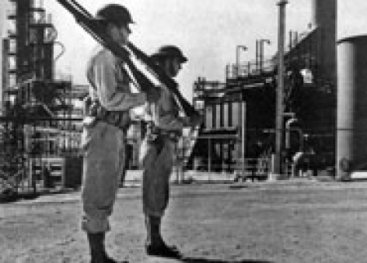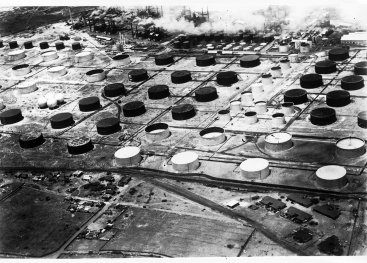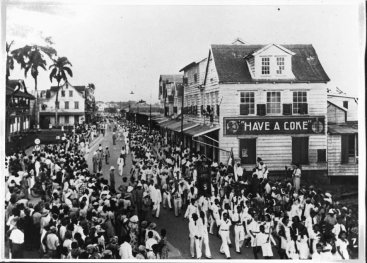
Imprisonment
After the German invasion of the Netherlands in May 1940, the executive in the western colonies introduces measures against enemy influences. Mail and press are censored. All Germans, including several Jews, and other possible enemies of the state are imprisoned. In Surinam, this includes the very popular German missionaries of the Evangelical Brotherhood.
Camps on the Antilles and Aruba
On the Antilles and Aruba, many people also have difficulty viewing their German neighbours as the enemy. Nor are the Germans treated badly really. They are detained in a camp on Bonaire and in camp Copieweg in Surinam.


Pro-German Dutch East Indies
In the Dutch East Indies, Dutch people are detained in May 1940 on suspicion of being pro-German. They are transferred to Surinam in 1942, where they are detained in the remote camp Jodensavanne (Jew’s Savannah). They are treated badly.
Other groups
Two other groups are also detained in Surinam: Dutch people who had emigrated to South Africa and refused to join the armed forces and dozens of prostitutes and gang members arrested in Paramaribo in October 1943.
The Meyer issue
The detainees from the Dutch East Indies are badly treated. They are seen as real traitors. In the remote Camp Jodensavanne, they are forced into hard labour under strict supervision. In November 1942, five detainees refuse to carry out an order. They are thrown into wooden punishment cells. Four of the prisoners manage to escape with the aid of a handmade saw. They are caught, tied up, abused, and after five days taken to Paramaribo by boat.
Meyer had two prisoners shot
There they are questioned by Territorial Commander Meyer, who has two of the prisoners shot. The official announcement says they were shot while fleeing. After the war, it turns out they were shot while handcuffed and at short range by five bullets from behind. In the Netherlands, it is decided to not prosecute Meyer.


